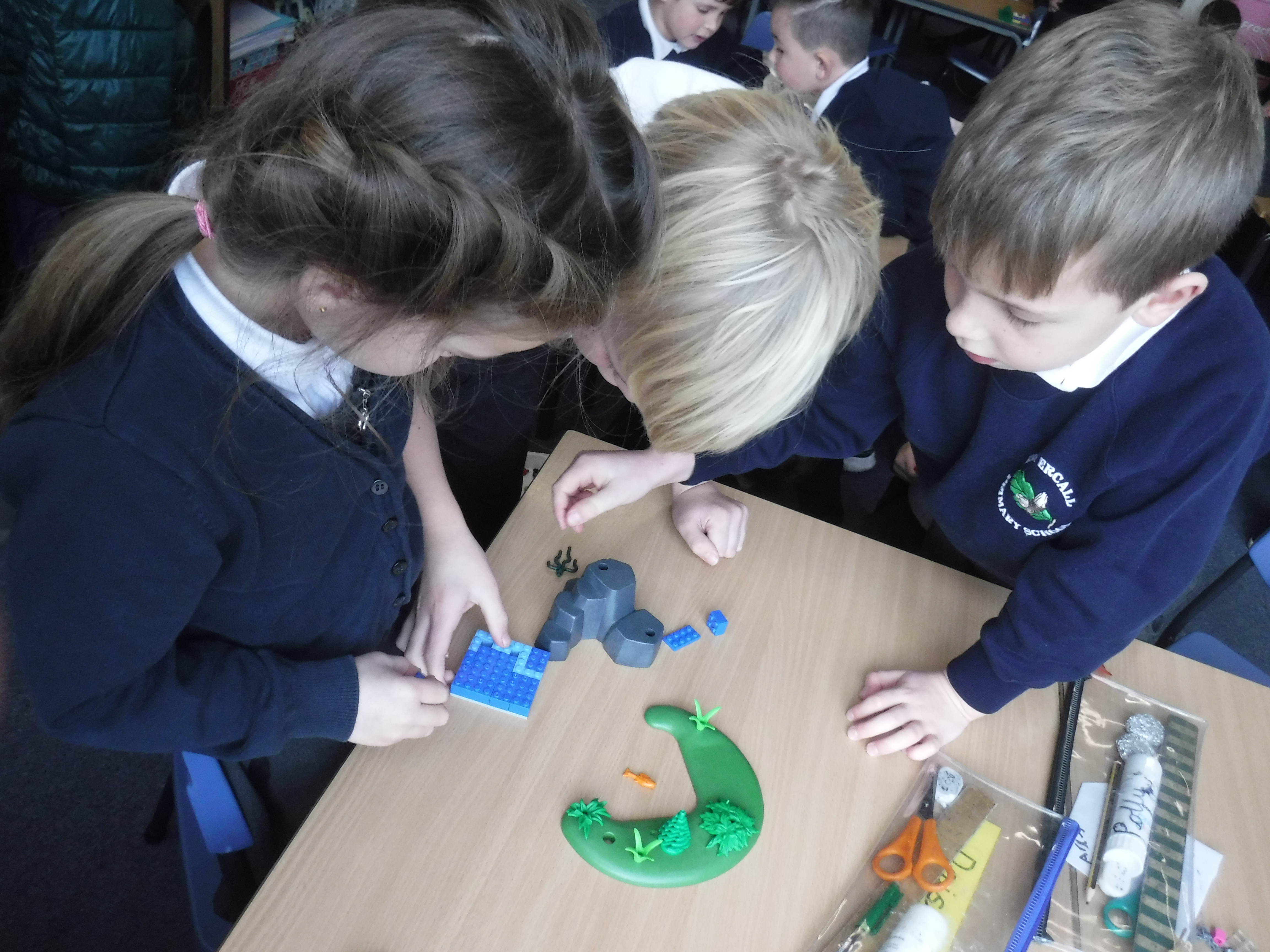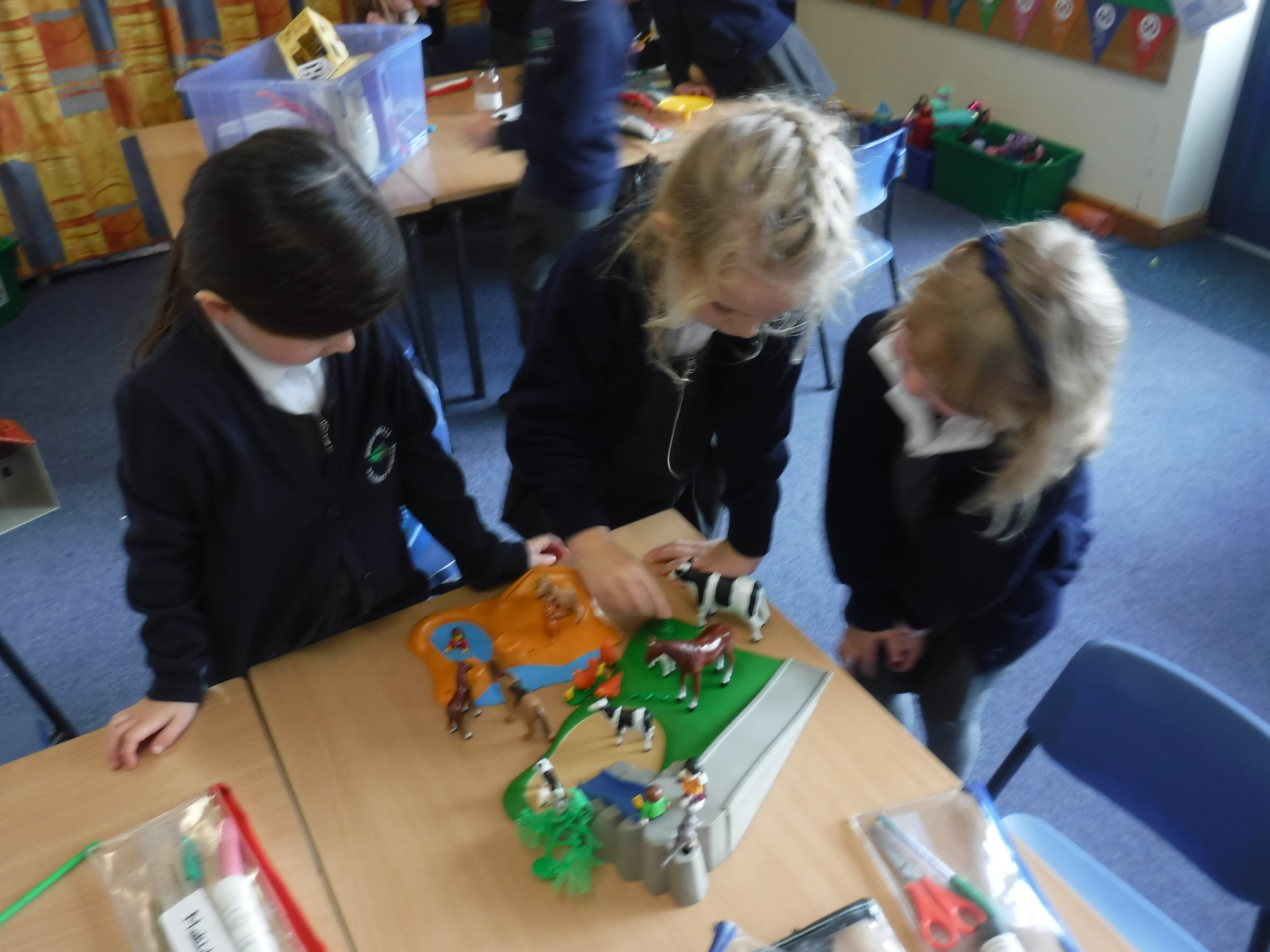Intent
What does RE look like at High Ercall?
At High Ercall Primary School we aim to support pupils so that they become independent and responsible members of society who understand and explore big questions about life, to find out what people believe and what difference this makes to how they live, so they can make sense of their own lives and those of others.
We use some of the Telford and Wrekin SACRE (2021) units of work for the teaching of RE, and others taken from different sources that cover the same aims. The SACRE syllabus aims:
- To stimulate interest and enjoyment in Religious Education.
- To prepare pupils to be informed, respectful members of society who celebrate diversity and strive to understand others.
- To encourage students to develop knowledge of the beliefs and practices of religions and worldviews, to develop informed opinions and an awareness of the implications of religion and worldviews for the individual, the community and the environment.
- To enable pupils to consider their own responses to questions about the meaning and purpose of life.
Knowledge forms the basis for progress in RE and our curriculum considers two types of knowledge: substantive (the what) and disciplinary (the how). In terms of substantive knowledge, the development of such is reflected through the curriculum units where a religion is revisited and different questions are asked/ knowledge provided as pupils move through school. With regards to disciplinary knowledge in RE we think about the methods (the ways children find out about religion) and the personal disciplinary knowledge, which relates to how the study of religion helps pupils to learn about themselves and their values.
What do we want children to be able to do by the end of Year 6?
The SACRE syllabus states that these are some of the key skills that pupils should acquire within RE teaching:
- ask pertinent and challenging questions
- gather, interpret and analyse information
- draw conclusions and evaluate issues using good reasoning
- hold an argument/ debate
- express their own opinions (Ofsted, 2013, pp.9 and 31).
- investigate religions and worldviews through varied experiences, approaches and disciplines
- reflect on and express their own ideas and the ideas of others with increasing creativity and clarity
- become increasingly able to respond to religions and worldviews in an informed, rational and insightful way
- critical and personal evaluation
- find out about investigate
- respond creatively
- articulate beliefs, values and commitments clearly
There are many cross-curricular skills that develop through the teaching of RE but one of the main aims is that children can ask questions, carry out enquiries, express opinions and respond sensitively to others. By the end of Year 6 pupils will be equipped with systematic knowledge and understanding of the religions taught, enabling them to develop their ideas, values and identities. They should be curious and respectful of our world and ready for the transition to Key Stage 3.
How will this support the children in lifelong learning?
Our children are encouraged to develop an aptitude for dialogue so that they can participate positively in our society, with its diverse religions and worldviews. We aim for them to become independent and responsible members of a society who can make sense of religion, reflecting on their own ideas and ways of living. Having an understanding and respect for others will enable better communication, relationships and open mindedness as they enter adulthood.
Implementation
How is the curriculum for RE organised and how do we teach it?
Throughout the Agreed Syllabus there is an emphasis on conceptual development. The concepts taught must make sense to the child and be relevant to them. The syllabus states that ‘If pupils are able to make links with their own experiences they will be able to engage in deeper learning and see the relevance of what they are learning’. This will lead to children knowing more, understanding more and remembering more.
Due to our mixed year groups the organisation of our learning differs from the single year group Long Term Planning provided by SACRE but still builds a progressive curriculum with concepts that are revisited, and built upon, throughout the school career of each child. The concepts that we have chosen are; respect, belonging, worship, community, resurrection and festivals.
At High Ercall Primary School teachers aim to create a safe environment where big questions can be asked and discussed without prejudice and children learn about, and respect, the beliefs of others. RE is taught for around an hour per week every other half term, alternating with PSHE, Relationship and Sex Education. Alongside classroom time we have regular visits from the local vicar, who performs an assembly once a month, and our Head teacher delivers further assemblies ensuring that we have a weekly assembly with an RE focus.
There are also links with leaders from a local Sikh Gurdwara and an Islamic Mosque, who perform assemblies occasionally and offer visits for our children to experience their places of worship. As our school is situated opposite the local church we make regular visits throughout the year attending services as a school at Harvest and Christmas and visiting to learn more about Christianity at a time that links with the learning in each class.
Children with SEND
Our children with any additional needs access the same high-quality teaching and learning in RE as their peers. Our curriculum is fully inclusive and supported by our well-trained staff. They may also be supported through an Individual Provision Map with additional adult support within a lesson, or a pre-teach or re-teach of new vocabulary. This additionality, along with adaptive teaching of the curriculum, is planned to take into account individual needs. In RE this could mean that a child:
- is introduced to new vocabulary prior to a lesson, it is revisited afterwards and pictures are used to support understanding.
- is supported with writing/ recording their ideas by having a scribe or a different way of recording their information. This could be sentences to sequence, or match, rather than writing them, drawing to record ideas or matching pictures to sentences.
- has more time or works 1:1 with an adult or in a smaller group.
This is monitored by our SENDCO - Sarah Roberts - and parents are fully engaged and involved.
Impact
How do we review learning in RE?
Learning in RE is monitored and reviewed by the subject leader by looking at books, talking to children and monitoring the Medium Term Plans completed by staff. In order to monitor impact on children’s learning the teachers carry out formative assessment during their lessons through the use of:
- Quizzes and retrieval questions
- Mind maps for recall
- Drama
- Discussion or debate
- Marking and feedback according to our policy (mainly verbal feedback)
By making learning and assessment engaging children are more likely to recall the knowledge that they have been taught. In Key Stage 1 children may be asked to sequence pictures or build lego models for various stories that they have learnt about through RE as a way of assessment. In Key Stage 2 assessment may take the form of a research or debate session.
By delivering a fun, engaging, high-quality education, we provide children with the foundations for understanding the world around them and the means to communicate respectfully with others.




